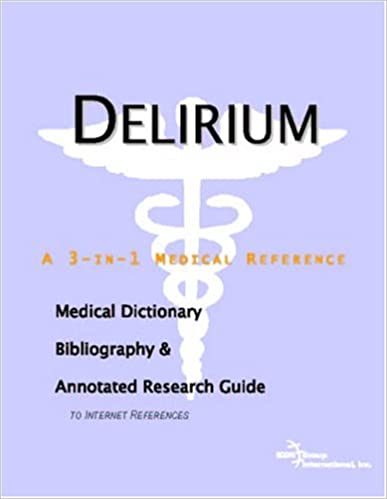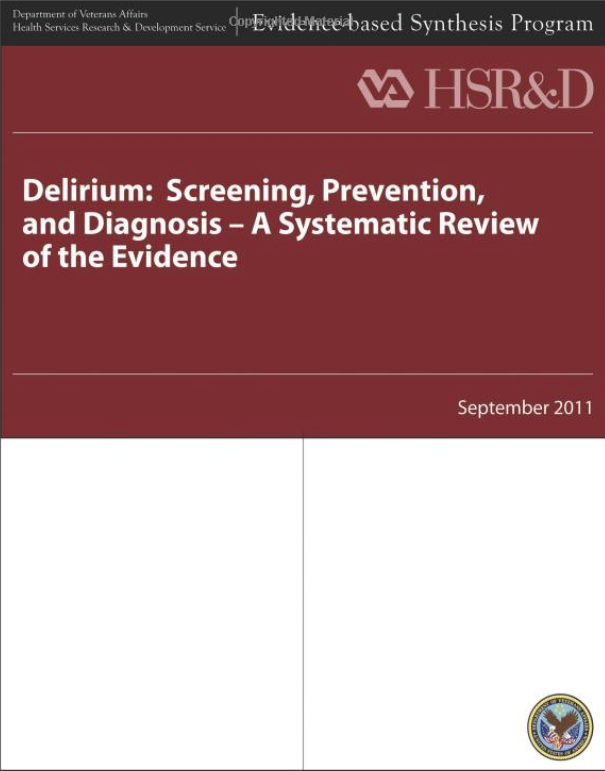Delirium
Delirium is an abrupt change in the brain that causes mental confusion and emotional disruption. It makes it difficult to think, remember, sleep, pay attention, and more. You might experience delirium during alcohol withdrawal, after surgery, or with dementia.
Cluster Number:
Wiki Number: W052
Diagnosis: Delerium
US Patients: 1-2%, more with age
World Patients:
Sex Ratio:
Age Onset: most after 65
Brain Area: imbalance in dopamine and serotonin
Symptoms: confusion for hours or days, disorientation, disorganized thinking, uncontrolled muscles
Progression:
Causes: drug withdrawal, too much alcohol, prior dementia, sepsis-illness
Medications: haliperidol and other antipsychotics; 60% death rate in hospitalized elders with delerium, increases dementia X13.
Therapies: Maximize oxygen, hydration, feeding, pain control, control of other factors affecting the brain
YouTube Video: Understanding Delirium
Click the book to link or order from Amazon.
Click the book to link or order from Amazon.


